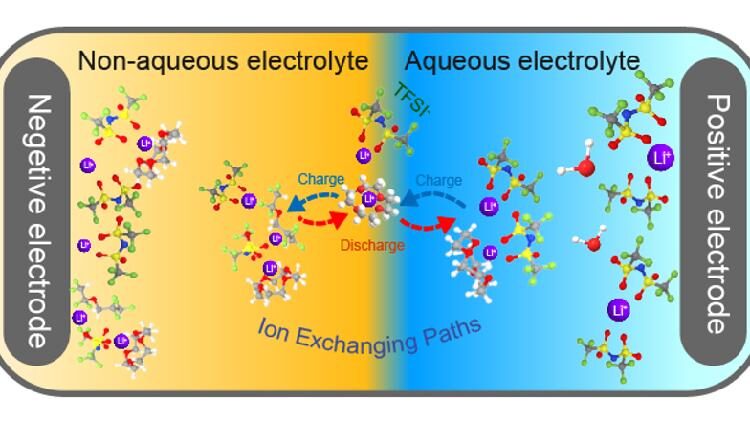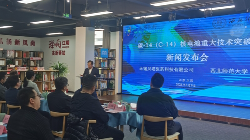A team of researchers has made a groundbreaking discovery in battery technology that could transform how we power everything from smartphones to electric planes and even our homes. Led by Professor Wang Chunsheng from the University of Maryland, the team developed a novel water-based electrolyte system that overcomes long-standing challenges in aqueous energy storage.
“We created membrane-free aqueous/organic bi-layer electrolytes and reduced interface resistance and mixing between the aqueous and organic phases by adding super-lithophilic ionophores,” explained Dr. Zhang Xiyue, the first author of the study published in Nature Nanotechnology.
Water-based, or aqueous, electrolytes are gaining attention worldwide for their safety and eco-friendliness. However, they’ve been limited by a narrow electrochemical stability window, capping the working voltage and, consequently, the energy density of aqueous batteries. This limitation has made it difficult for them to compete with traditional lithium-ion batteries.
Previous efforts increased the stability window of aqueous electrolytes but didn’t fully solve compatibility issues with high-energy anodes like lithium metal or graphite. Now, the team’s new electrolyte system operates at an unprecedented voltage range of 0.0 to 4.9 volts, shattering previous barriers and paving the way for high-energy-density aqueous batteries.
During tests, their model battery maintained stable performance over more than 2,000 cycles, showcasing exceptional durability. This advancement could have significant implications for electric aviation, large-scale grid storage, and even extracting lithium from seawater.
Recognizing the importance of their work, Professor Wang and Dr. Zhang also published a comprehensive review in Advanced Materials, discussing the principles of aqueous electrolyte design and proposing innovative future strategies. Their contributions offer a solid foundation for building the next generation of safe, high-energy storage systems.
This breakthrough not only pushes the boundaries of battery technology but also brings us one step closer to a more sustainable and energy-efficient future.
Reference(s):
New energy storage to push batteries for electric aviation, grid power
cgtn.com








